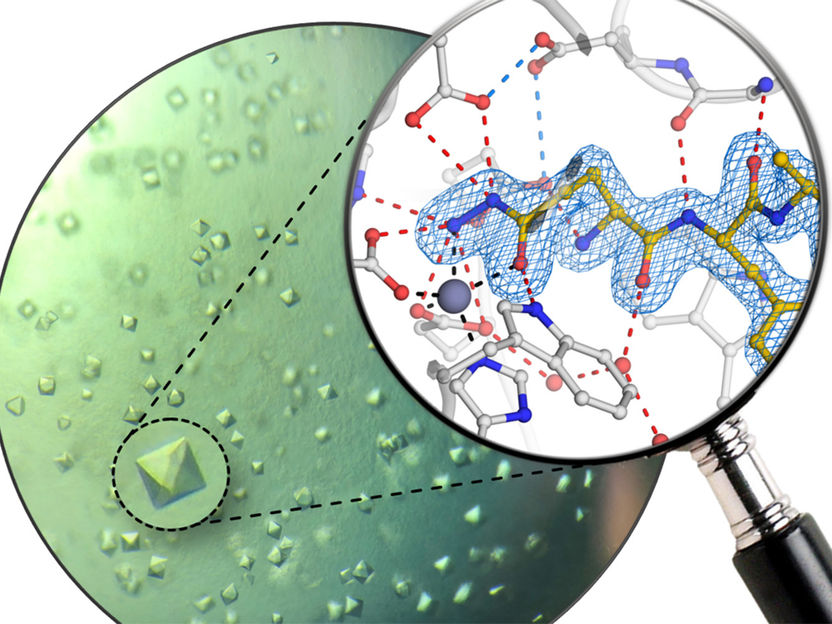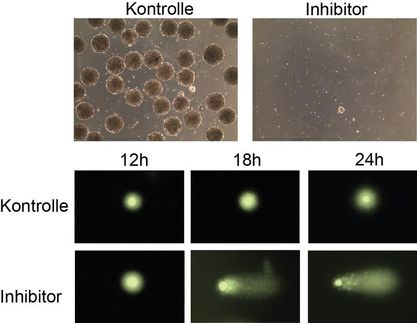A chemical tailor-made suit for Alzheimer’s drugs
Research team develops new inhibitors for enzymes
With over 1.2 million people affected in Germany alone and over 50 million people worldwide, Alzheimer's disease, also referred to simply as Alzheimer's, is one of the greatest medical and social challenges of our time. Due to pathological changes in the brain, patients become increasingly forgetful and disoriented as the disease progresses. In the worst cases, even close relatives are no longer recognized and simple household tasks can no longer be carried out independently. This means care is needed for those affected. Despite intensive research, Alzheimer's disease is still considered incurable today. Researchers at the University of Göttingen and the Fraunhofer Institute for Cell Therapy and Immunology Leipzig-Halle have described a promising approach to treating Alzheimer's disease. The results have been published in the journal Biochemistry.

Protein crystals of the human enzyme glutaminyl cyclase and atomic structure of the new inhibitor
Lisa-Marie Funk
For the study, Professor Kai Tittmann from the Göttingen Centre for Molecular Biosciences worked together with researchers from the Faculty of Chemistry at the University of Göttingen and the team led by Professor Hans-Ulrich Demuth from Fraunhofer IZI in Halle. Several years ago, the team from Halle discovered that a specific enzyme that is part of the human brain's hormone metabolism plays a critical pathophysiological role in the development of Alzheimer's disease, in addition to its actual biological function of hormone maturation. The first inhibitors of this enzyme, which inhibit specific pathological processes, have already produced promising results.
In order to give these active ingredients a chemical “tailor-made suit”, the research team investigated the enzyme's reaction mechanism using protein crystallography. “This enabled us to obtain 'snapshots' of the working enzyme for the first time," says senior author Tittmann. This made it possible to build novel inhibitors where the principle of the design is based on the natural reaction. These inhibitors therefore lead to highly selective binding without the risk of dangerous side effects. The scientists also succeeded in determining an atomic structure of the human enzyme with the new substance. This forms an important basis for further development of the inhibitors. "We are confident that our results will lead to the development of a new, highly selective generation of Alzheimer's drugs," explained Demuth.
Original publication
Original publication
Oliver Kupski et al.; "Hydrazides Are Potent Transition-State Analogues for Glutaminyl Cyclase Implicated in the Pathogenesis of Alzheimer’s Disease"; Biochemistry; 2020
Organizations
Other news from the department science

Get the life science industry in your inbox
By submitting this form you agree that LUMITOS AG will send you the newsletter(s) selected above by email. Your data will not be passed on to third parties. Your data will be stored and processed in accordance with our data protection regulations. LUMITOS may contact you by email for the purpose of advertising or market and opinion surveys. You can revoke your consent at any time without giving reasons to LUMITOS AG, Ernst-Augustin-Str. 2, 12489 Berlin, Germany or by e-mail at revoke@lumitos.com with effect for the future. In addition, each email contains a link to unsubscribe from the corresponding newsletter.


















































